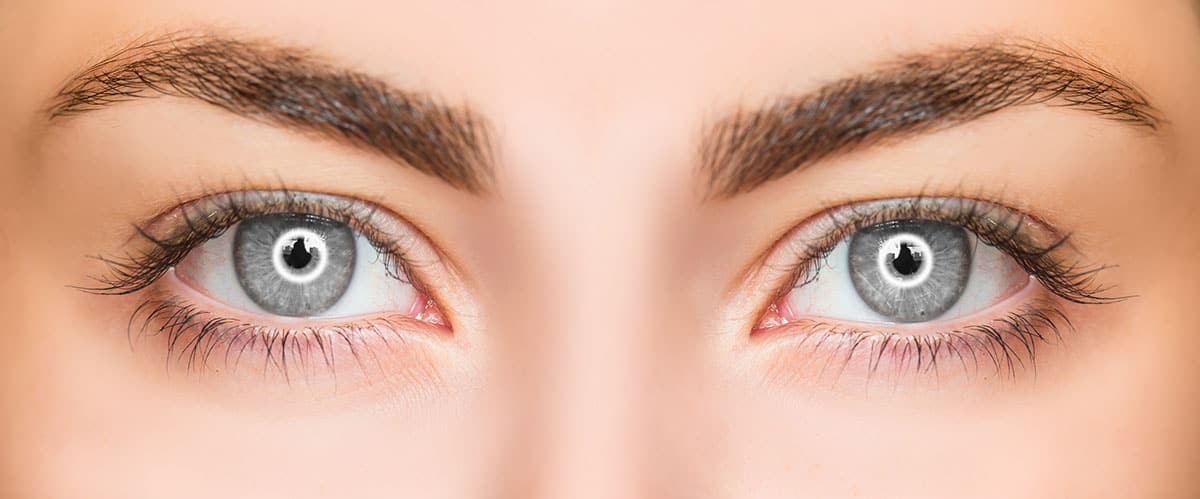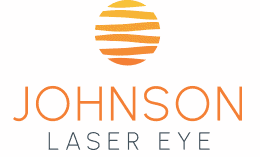
it’s a new day. see it clearly.

Cataract Surgery

Johnson Laser eye

Cataract Surgery In Wilmington and surrounding areas


About Cataracts
Like a camera, every eye has a natural built-in lens inside which allows us to focus in order to see. When we are young, this lens is crystal clear and very flexible, but over time the lens gradually begins to stiffen and become cloudy. This lens aging process inevitably starts in our early 40’s, when the first symptoms typically begin. If you are old enough to have experienced decreased near vision, less range of focus, or the need for readers or bifocals, you now understand that this lens stiffening is part of the natural lens aging process.
Eventually, not only has the lens stiffened, but it’s become progressively more cloudy, causing your vision to diminish, even when wearing glasses or contact lenses. This is when we call it a cataract, and when your vision is no longer satisfactory, it is time to replace the cloudy cataract lens with a brand-new clear artificial lens. This is the essence of cataract surgery.
Symptoms of cataracts:
- Blurry vision
- Glare, especially at night or with bright lights
- Ghost images or double vision
- Decreased contrast sensitivity (the ability to see sharp outlines of small objects)
- Dullness of colors
- Halos around lights
- Sensitivity to bright light
- Trouble following the golf ball
Cataract Surgery
Cataract surgery is one of the most common surgeries performed in all of medicine, and it is also one of the most predictable and successful. During this outpatient procedure, Dr. Johnson gently removes your cloudy cataract lens and replaces it with a clear artificial lens, which is typically made from an acrylic that lasts the rest of your life. After the eye is dilated and numbed, the whole procedure normally takes less than 15 minutes. There should be no pain before, during, or after surgery, and most patients are surprised by how smooth and comfortable the whole experience is.

Laser Cataract Surgery Technology
In July, 2024 Johnson Laser Eye will become one of the first sites in North Carolina to employ the LENSAR ALLY Adaptive Laser Cataract system, which is the world’s most advanced tool for delivering next-gen results in cataract surgery. Opting for a personalized laser-cataract procedure with the advanced features of the ALLY laser provides more precision and accuracy during critical steps of the procedure. It’s also less invasive than manual surgery, and can result in better vision after the procedure. Reduced complications and faster recovery may also be possible with this advanced technology. During your consultation Dr. Johnson will determine if you are a candidate for Laser Cataract Surgery with the advanced ALLY system.
Lens Implant Options (also known as Intra-Ocular Lens or IOL)
The implantation of an artificial lens after cataract removal has been a standard part of cataract surgery since the early 1980’s. But among the many transformative advances in cataract surgery since that time, one of the most exciting is the development of Advanced IOL options, which can correct a larger range of vision, as well as astigmatism.
Basic IOL
Before we review the Advanced IOL options, we will first discuss the standard monofocal lens which is covered by government and commercial insurance. Patients with a basic IOL can expect to wear glasses after surgery for all near tasks and most or all intermediate tasks. These lenses do not correct astigmatism, so glasses will often be necessary for distance vision as well. A basic IOL provides better vision than before cataract surgery, but glasses will still be necessary some or all of the time in order to see clearly.
Multifocal IOL (for distance, intermediate, and near vision)
Modern multifocal lenses allow the eye to see at distance, intermediate, and near with minimal dependence on glasses or contact lenses. Though some patients may experience glare or halos around lights at night with multifocal lenses, these lenses offer the greatest potential for visual freedom. Multifocal lenses can also correct astigmatism at the same time. The results are especially precise when supported and fine-tuned by the ALLY Adaptive Laser Cataract system.
Extended depth-of-focus IOL (for distance and intermediate vision)
These lenses, also known as EDOF lenses, are a sweet-spot for many patients. The overall quality of vision is generally excellent, day or night, and most distance and intermediate activities can be performed without glasses. This would include a range of vision from driving to using the computer. Reading glasses would likely still be necessary for more close-up tasks such as smaller print or reading a menu in the evening. EDOF lenses can also correct astigmatism at the same time. The results are especially precise when supported and fine-tuned by the ALLY Adaptive Laser Cataract system.
Astigmatism-correcting Lens (also known as toric IOL)
Toric lenses are an ideal choice for those with astigmatism who want the best possible clarity and quality of vision at distance, and don’t mind wearing reading and computer glasses. Toric IOL’s are also a great option for patients with astigmatism who are candidates for blended vision (one eye set for distance vision and the other set for intermediate or near vision). The results with toric IOL’s are especially precise when supported and fine-tuned by the ALLY Adaptive Laser Cataract system.

LET’S TALK MORE ABOUT CATARACT SURGERY
What happens during the pre-operative visit?
We use the world’s most advanced diagnostic technology to get an incredibly detailed map of your eyes from front to back. These tests are painless – mostly just a series of quick flashes of bright lights. We will then dilate both eyes with eye drops (after which time your vision might be a little blurry for a few hours, especially up close). Dr. Johnson will then personally examine your eyes and discuss cataract surgery with you in detail. Finally, you will have an opportunity to meet with our Patient Concierge, who will assist with surgical scheduling, insurance, financing, forms, etc.
There are so many lens implant options! How do I decide which is right for me?
It’s true that there are a lot of lens implant options available, and we employ a wide variety based on the needs and desires of each individual patient. First, we really want to understand who YOU are – your interests, your priorities and your goals. We then analyze the information obtained through advanced diagnostic testing and a careful exam. Based on all of this information, Dr. Johnson will make a specific recommendation from a narrowed-down number of lens options. From here, it’s a conversation leading to the selection of a lens we’re both really excited about. Ultimately, we share the same goal – amazing new vision for both of your eyes! We’ll get there together.
What happens if the lens implant option I select doesn’t work out well for me?
In the unlikely event that your vision doesn’t turn out like we wanted, there are still options for getting great vision. Sometimes we can leave the lens implant in place and make other adjustments to your vision. An example of this might be a laser tune-up. Some lenses can take several months to fully adapt, particularly multifocal lenses, so often the best solution is to just give things a little more time, with great vision waiting down the road a little ways. Other times the best option is to exchange the implant for a different type. Regardless of the situation, we try to do all the work before surgery, so that we have the highest possible chance of an amazing outcome.
Why doesn’t Medicare or my other insurance cover Advanced IOL’s or Laser Cataract Surgery with astigmatism correction?
Insurance companies have their own reasons for what they will and will not do, but usually it comes down to $$. It has nothing to do with how well these technologies work, it’s just that insurance companies such as Medicare have decided they don’t want to pay for anything more than the basic option.
Is an Advanced IOL and Laser Cataract Surgery affordable?
We offer a variety of easy payment plans to make Advanced IOL’s and/or Laser Cataract Surgery with astigmatism correction very affordable for most budgets. Our Patient Concierge will review these options in detail on the day of your consultation.
What happens on surgery day? What is the surgery itself like?
When performed in our Office-Based Surgery facility, right here at Johnson Laser Eye, the cataract surgery experience should feel very smooth and relaxed. You’ll be taken care of by the same staff whom you have already come to know from prior visits to our office. We will give you medicine to help you relax before surgery, then escort you into our world-class cataract surgery suite. If your surgery is performed at the Ambulatory Surgery Center, it will feel a little more like a hospital environment, but you’ll still be extremely well cared for by the Wilmington SurgCare staff. During the surgery, you’ll see some bright lights and you might sense a little fluid or gentle pressure. Dr. Johnson will talk you through the procedure, and before you know it, you’ll be finished and on your way home!
Does it hurt?
No. Cataract surgery is not painful.
What happens after surgery?
You’ll be on your way home shortly after the conclusion of your surgery. Your eye will be covered with a protective shield, and you’ll start using your eyedrops later that same day. Most patients need to use their drops for about a month after surgery. Dr. Johnson will check your eye the day after surgery, and then you’ll have another post-op visit one week after surgery and one month after surgery, either at Johnson Laser Eye or with your regular eye doctor.
What can I do or what should I avoid after surgery?
For the first few days after surgery, you should take it easy and avoid strenuous activity. At your one week checkup, you will likely be cleared to resume most regular activities. You can usually start driving again and return to work as soon as you are comfortable doing so, often 2-3 days after surgery.
How soon does my vision improve?
This depends on a lot of individual factors, such as the density of the cataract or other conditions such as glaucoma or macular degeneration. That said, most patients will see a significant improvement in their vision between 1 and 7 days after surgery.
Do cataracts come back?
A cataract is when your own natural lens becomes clouded, and during surgery this cloudy lens is completely removed and replaced with an artificial lens. So the cataract cannot come back, ever. What does happen commonly is that the body can develop some film behind the lens implant, which can make the vision blurry again. Fortunately, this film is easily treated with an in-office procedure called a YAG laser. This painless treatment takes less than a minute, and is covered by insurance.
What are the risks?
Cataract surgery is one of the most commonly performed, safest, and predictable procedures in all of medicine, but like any surgery, it is not risk-free. From time to time, unfavorable things DO happen during or after cataract surgery, and fortunately, most (but not all) can be managed with a good final outcome. Risks include, but are not limited to, infection, bleeding, glaucoma (elevated eye pressure), dry eye, inflammation or swelling, double vision, droopy eyelid, floaters, retinal detachment, the need for additional surgery, or even blindness.
Have I selected the right surgery center? The right doctor?
Well, we certainly think so! At Johnson Laser Eye, we use the world’s most advanced technology, while treating all of our patients with the highest level of kindness and respect. Dr. Johnson has developed a reputation over nearly 2 decades in local practice as the Wilmington ophthalmologist other doctors trust with the eyes of their patients and their own families. We consider it an honor and a privilege for you to consider Johnson Laser Eye for your cataract surgery.
Will I be left high and dry after surgery?
Certainly not. We are always here for you, for as long as you need us. You can call Dr. Johnson 5 or even 10 years after your surgery, and he will always be happy to help.
Will all of my questions be answered?
Yes! Ask all of them, and then ask them all again if needed. We love what we do and are always happy to talk about cataract surgery.
Will they think my questions are dumb?
No, there truly are no silly questions. If you’re thinking it, chances are someone else is too. Ask away! We want you to be fully informed and confident in your eye care decisions.
Is there anything else I should know?
Modern cataract surgery is truly life-changing, and we welcome the opportunity to assist you in exploring the possibilities. We would love to meet you and learn about your eyes, your lifestyle, and your goals, and in doing so, to earn your trust in this journey.


